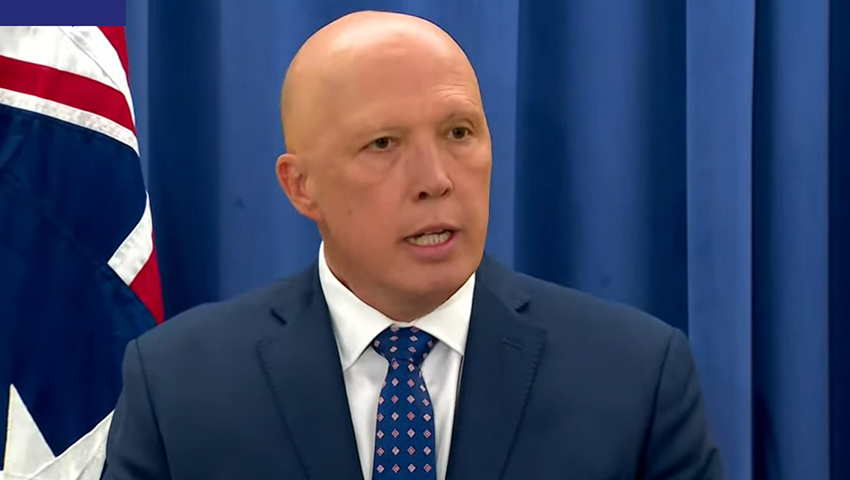Chinese President Xi Jinping’s regime is “the biggest issue” Australia will face “in our lifetimes”, the former defence minister has said after being elected unopposed as the new leader of the federal Liberal Party.
Former minister for defence Peter Dutton has officially assumed the role as the nation’s federal opposition leader, elected unopposed alongside deputy Liberal leader Sussan Ley during a party room meeting in Canberra this morning (30 May).
Following his opening address as leader of the opposition, Dutton was asked if he regretted the Coalition’s stance on China when in government, with some claiming his rhetoric was too aggressive.
However, Dutton defended the former government’s posture, stressing the approach was informed by intelligence he received from the National Security Committee and as defence minister.
The new Liberal leader warned China under President Xi is “the biggest issue our country will face in our lifetimes”.
“That’s the reality,” he said.
“That's the assessment of the Americans, of the British, of the Japanese, of the Indians, and it’s our assessment as well.”
Dutton made particular reference to Beijing’s open plans to absorb Taiwan, noting the potential impact of an invasion on regional security.
“I can tell you from all I’ve seen, the risk continues to compound,” he said.
“China has been very clear about their intent in relation to Taiwan, you’re seeing the reality now on the ground.”
Dutton also went on to defend the Morrison government’s decision to ban Huawei from accessing Australia’s 5G network.
“I didn’t want to be in an environment where we would have autonomous vehicles and remote monitoring of health devices for our telecommunications system to be compromised,” he said.
“I don't want interference in our electoral outcomes. I don’t want there to be threats on university campuses.
“I want us to have a productive relationship with China. I want it to be restored but that is an issue for China.”
Dutton served as minister for defence for just over a year, replacing Linda Reynolds in March 2021.
During his time in the portfolio, Dutton oversaw a revamp of the Commonwealth’s defence procurement strategy, aimed at enhancing and accelerating capability in response to the growing threat posed by China.
Key investments and acquisitions included:
- A commitment to procure nuclear-powered submarines promised under Australia’s historic technology-sharing partnership with the United Kingdom and the United Sates (AUKUS).
- The $2.5 billion acquisition of 29 Boeing AH-64E Apache helicopters and 12 additional Sikorsky MH-650 Romeo helicopters to replace the troubled Airbus Tiger and Taipan fleets.
- The purchase of 75 M1A2 SEPv3 Abrams Main Battle Tanks under the LAND 907 Phase 2 project following approval from the federal cabinet.
- A $3.5 billion investment in the accelerated delivery of new missile capabilities for the Royal Australian Air Force and the Royal Australian Navy.
- The establishment of a $1 billion sovereign Guided Weapons and Explosive Ordnance (GWEO) Enterprise.
- The launch of Project REDSPICE (Resilience, Effects, Defence, Space, Intelligence, Cyber, and Enablers) – a $9.9 billion investment over the next decade in the Australian Signals Directorate (ASD).
- The selection of the Schiebel Pacific S-100 Camcopter as the preferred platform for Block One of the SEA 129 Phase 5 Maritime Unmanned Aircraft System project.
The Nationals have also named a new leader, electing David Littleproud to replace Barnaby Joyce.
Senator for NSW Perin Davey will serve as the deputy leader of the Nationals.
Meanwhile, the Albanese government is yet to appoint a defence minister.
Brendan O’Connor served as shadow minister for defence prior to Labor’s election to government, however, reports suggest new deputy prime minister Richard Marles would assume the role.
[Related: Albanese, the Quad, and ‘JAUKUS’ ]








